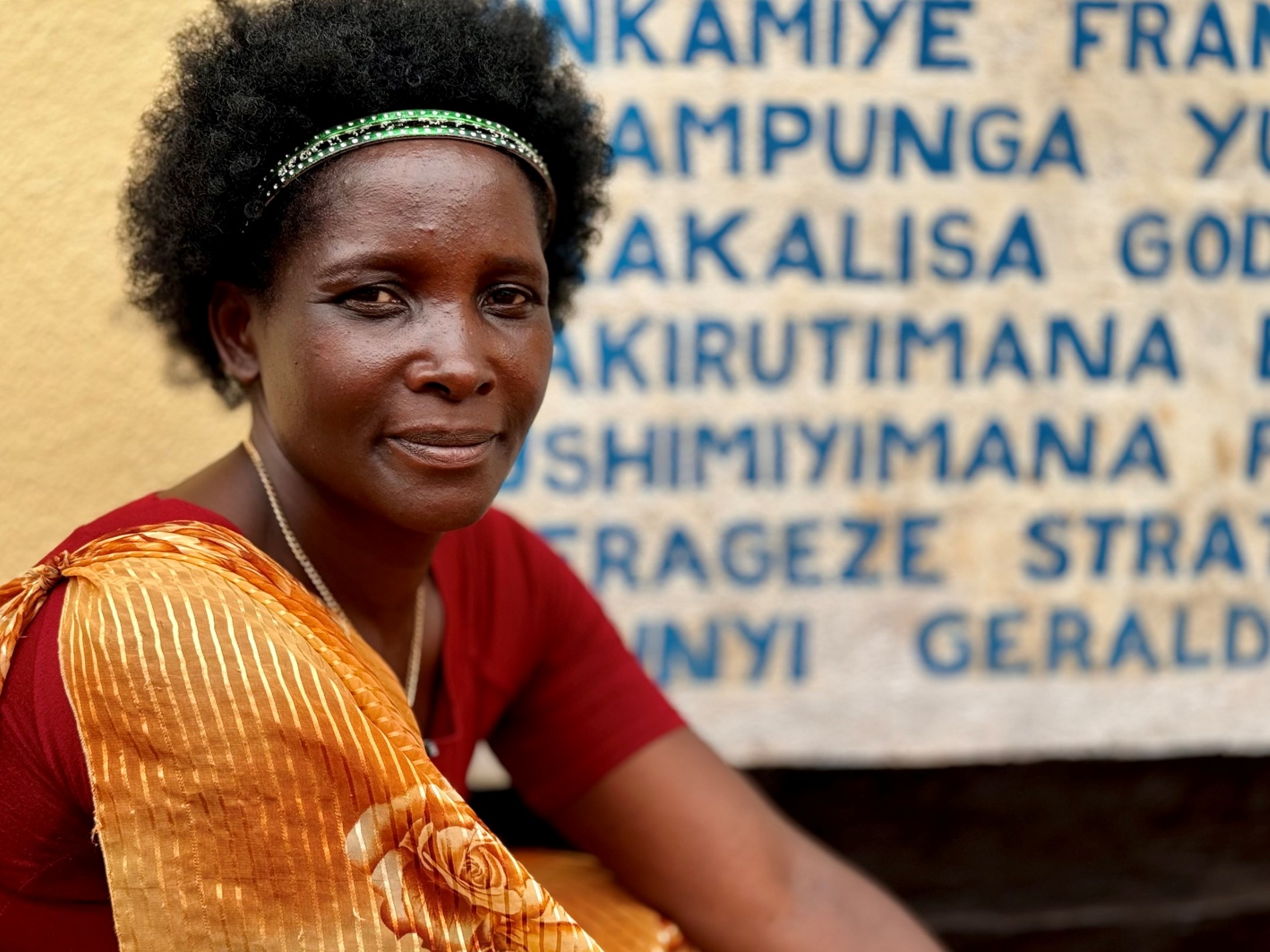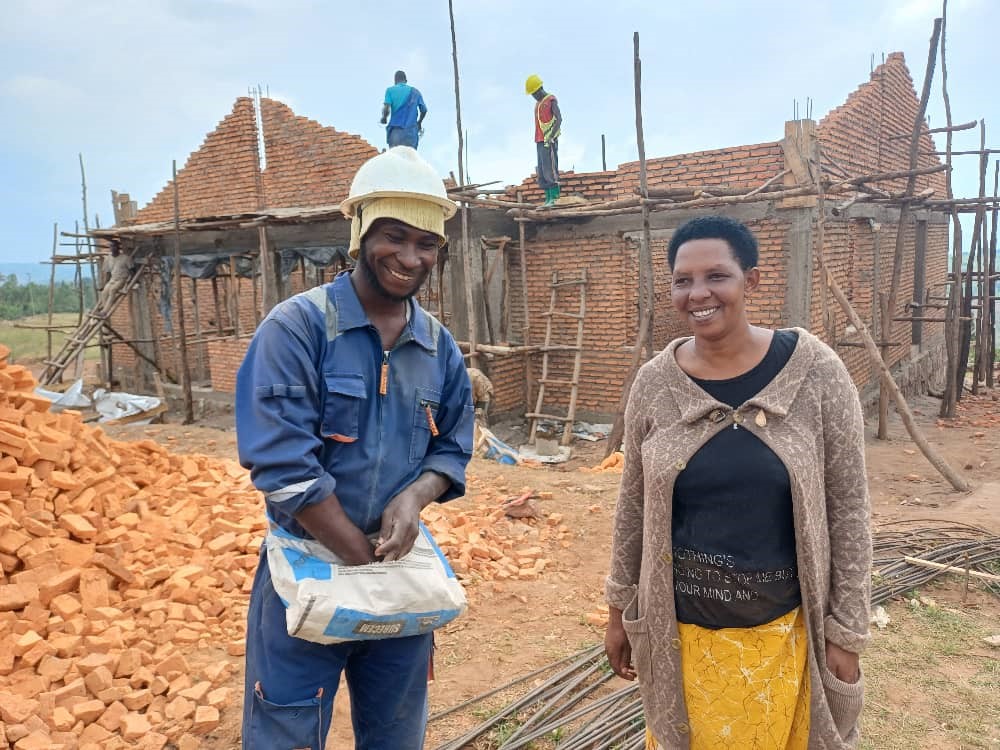“I didn’t want to see another mother needlessly die in childbirth” - Specioza Our organizing in Rwanda began in 2009 in the rural village of Mumeya, where mothers…
Uwimana Annociata is Helping Build PICO Rwanda in Nyange
Uwimana Annociata is a PICO Rwanda leader from Nyange village, western Rwanda. After several months of training, she is excited to see how one-to-one conversations and the priorities that surface can result in an environment in which Nyange residents themselves decide to build their power and improve their community.
Nyange is a densely populated mountainous village with a fertile growing environment. All people from Nyange support themselves through subsistence farming. Most of the villagers are women. Born and raised in Nyange, Uwimana is twenty-five, married and has one child. She says,
“When PICO Rwanda was invited by our mayor, Yvona Mutakwasuku, to bring community organizing training to our villages, we thought we were going to be trained on how to better farm our small plots of land. Instead, we were trained to hold one-to-one conversations. At first I was not sure if I was interested. As time went on, I learned that I was communicating more clearly, having new relationships, learning how to identify needs rather than wants, and building my confidence. I was no longer shy. I was very interested when a group of PICO Rwanda leaders from Mumeya visited us. We had heard stories about Mumeya from Pastor John but didn’t pay much attention. But when we heard Mumeya leaders Polina, Specioza, Ezra and Damascent talk, we were all inspired by their reports and the research meetings they held with public officials and religious leaders in Kirehe and the capital city Kigali. After that I visited Mumeya and it was an eye opener because I had heard the clinic story, but did not believe that they organized the neighborhood to build it and hold public officials accountable. When I came back from the Mumeya tour, I had new energy and hope. I shared the story of Mumeya with my community, and felt lit up and on fire! Now we are all committed to learn more about community organizing. We have done over 100 one to ones, and next we will decide on what we will work on together.”
The Nyange region is one of many Rwandan examples of grassroots transition from war and repatriation to sustainable peace and development, building on the bravery of the young students from Nyange High School who were part of a refugee camp in DRC which was disbanded, sending many genocide refugees and perpetrators back into this western part of Rwanda. In 1997, militia men came by night, surrounded the high school and killed the guard. These men entered a classroom and demanded that students separate themselves along ethnic lines, but the students refused, maintaining “we are all Rwandans.” Frustrated, the militia indiscriminately launched an attack that killed six students. Pastor John comments that this tragedy teaches us that transition from repatriation to sustainable development and peace building is a process, it does not come in a short time, and it should come from within the people themselves in response to opportunities they identify to bring about change.


